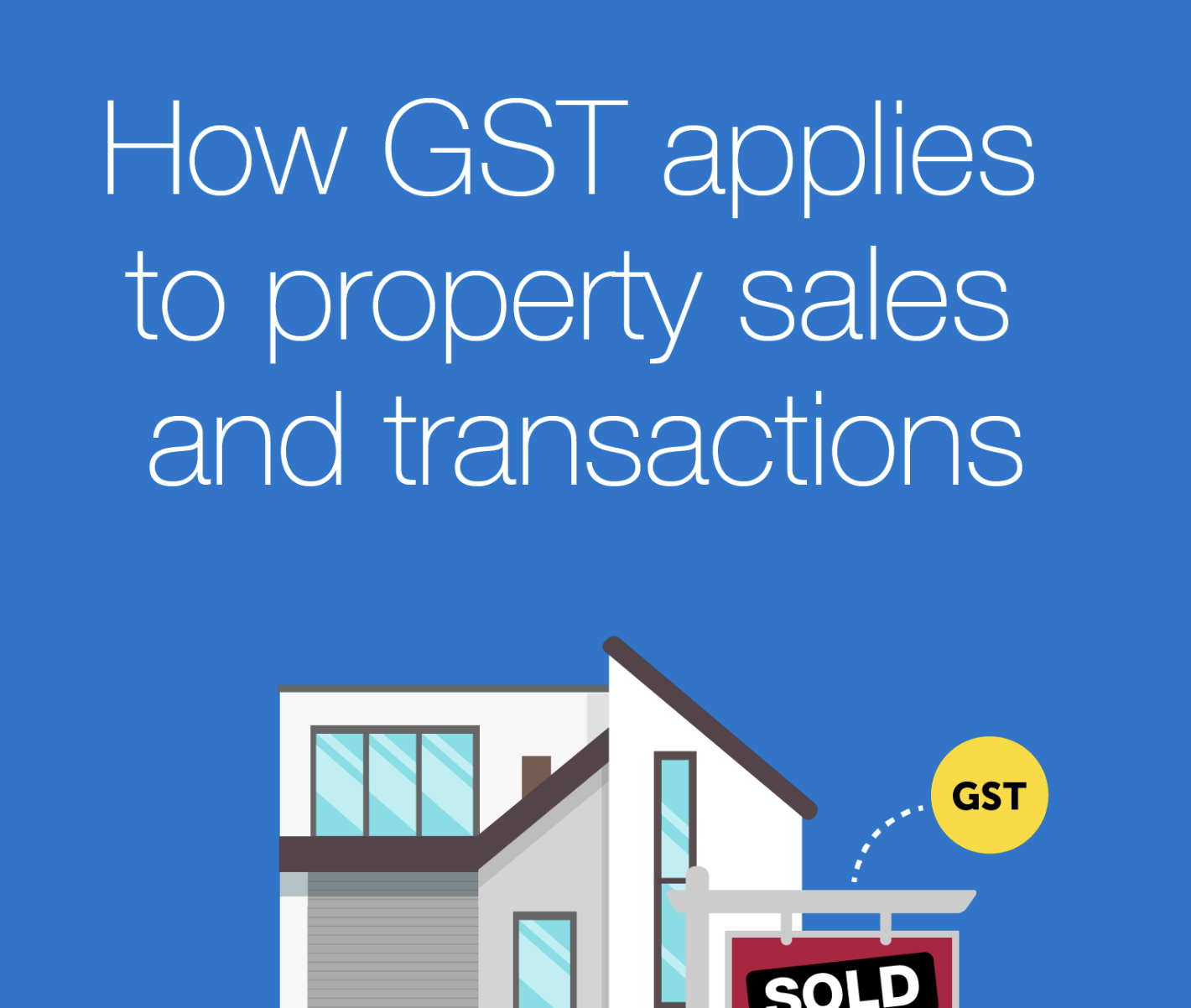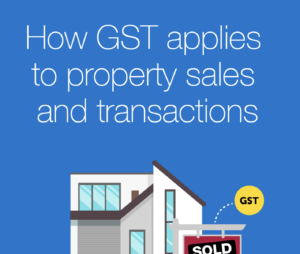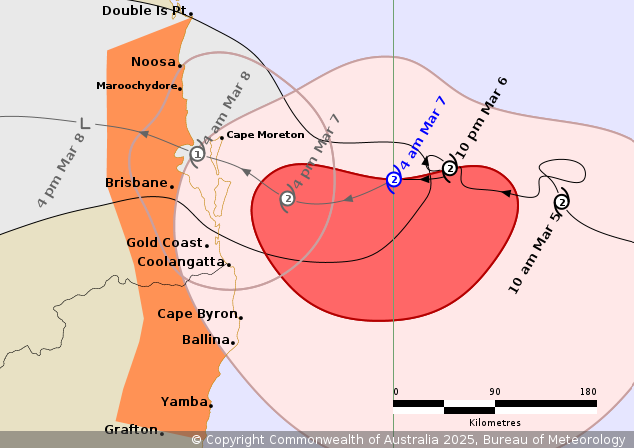
GST on QLD Property Transactions: 2024 Guide
This Article includes important GST Property Law Guide
- Contract of sale
- Identification documents
- Relevant documents/certificates (e.g. building/pest inspection report, survey plan, strata search report)
- Details of finance arrangements
- Other relevant information (e.g. disputes/issues with the property, zoning/planning restrictions)
What is GST and how is it associated with property transactions?
GST stands for Goods and Services Tax, which is a value-added tax levied on the supply of goods and services in Australia. In Queensland, the GST is regulated by the Australian Taxation Office (ATO) and is applicable to property transactions.
In property transactions, GST is generally applicable to the supply of new residential premises, commercial premises, and vacant land. The GST is not applicable to the sale of existing residential properties, as they are considered as input-taxed supplies.
For new residential properties, the GST is generally included in the purchase price and is payable by the buyer to the developer. The GST rate for new residential premises is currently 10%. However, if the property is intended to be used for long-term residential rental purposes, the GST may be reduced to 5.5%.
For commercial properties and vacant land, the GST is generally payable by the buyer to the seller in addition to the purchase price. However, if the buyer is registered for GST and intends to use the property for business purposes, they may be entitled to claim a credit for the GST paid.
It is important to note that there are certain exemptions and concessions available for GST in property transactions, such as the sale of a business as a going concern and the sale of certain types of residential property. It is advisable to seek professional advice from a tax accountant or solicitor to understand the specific GST requirements and implications of a property transaction in Queensland.
In Queensland is GST payable on residential property sales?
In general, GST is not payable on the sale of residential Real property in Queensland, as it is considered an input-taxed supply. This means that the sale of an existing residential property is not subject to GST, regardless of whether the property is sold by a developer, builder, or individual.
However, GST may be payable on the sale of new residential premises, which includes properties that have not been sold before, or have been extensively renovated or altered. The GST rate for new residential premises is currently 10%.
It is important to note that the definition of new residential premises can be complex and may include properties that have been built on new land, or those that have been significantly renovated or extended. In such cases, the seller may be required to register for GST and include the GST in the sale price.
It is advisable to seek professional advice from a tax accountant or solicitor to understand the specific GST requirements and implications of a residential property transaction in Queensland. They can assist you in determining whether GST is applicable to your transaction and ensure that you comply with any relevant GST laws and regulations.

When is GST payable on the sale of a property?
In Queensland, GST may be payable on the sale of property in certain circumstances. The following are the situations when GST is generally payable on the sale of property:
- Sale of new residential premises: GST is generally payable on the sale of new residential premises, which includes properties that have not been sold before, or have been extensively renovated or altered. The GST rate for new residential premises is currently 10%.
- Sale of commercial properties and vacant land: GST is generally payable on the sale of commercial properties and vacant land, unless the seller is not registered for GST, or the sale is exempt or input-taxed. The GST rate for commercial properties and vacant land is also 10%.
- Margin scheme: If the seller of the property is registered for GST and has acquired the property under the margin scheme, then the GST is payable on the margin of the sale price instead of the full sale price. The margin scheme is a method of calculating GST on the sale of property where the property was acquired before 1 July 2000 or the seller has chosen to apply the margin scheme.
- Sale of a business as a going concern: If the sale of property is part of the sale of a business as a going concern, then GST is not payable on the sale of property. The sale of a business as a going concern means that the seller is selling an enterprise, including any assets used in that enterprise, to the buyer.
It is important to note that the GST laws and regulations can be complex and may vary depending on the specific circumstances of the property transaction. It is advisable to seek professional advice from a tax accountant or solicitor to determine whether GST is payable on the sale of property in your situation.
When is GST payable on commercial property?
In Queensland, GST is generally payable on the sale or lease of commercial property, unless the sale or lease is exempt or input-taxed. The following are the situations when GST is generally payable on commercial property:
- Sale of commercial property: If a registered entity sells a commercial property, then the sale is considered a taxable supply and GST is generally payable. The GST rate for commercial properties is currently 10%. However, if the property is being sold under the margin scheme, the GST payable will be calculated on the sale margin rather than the sale price.
- Lease of commercial property: If a commercial property is leased, then the lease payments are generally subject to GST. The landlord is required to register for GST if the annual turnover from leasing commercial property is over $75,000. The GST rate for lease payments is also currently 10%.
- Sale of a business as a going concern: If a commercial property is being sold as part of a business as a going concern, then the sale of the property is generally exempt from GST. The sale of a business as a going concern means that the seller is selling an enterprise, including any assets used in that enterprise, to the buyer.
It is important to note that there are certain exemptions and concessions available for GST in commercial property transactions, such as the sale of a commercial property as part of a deceased estate. It is advisable to seek professional advice from a tax accountant or solicitor to understand the specific GST requirements and implications of a commercial property transaction in Queensland.
Is GST payable on vacant land QLD?
In Queensland, GST is generally payable on the sale of vacant land, unless the sale is exempt or input-taxed. The following are the situations when GST is generally payable on the sale of vacant land:
- Sale of vacant land by a registered entity: If a registered entity sells vacant land, then the sale is considered a taxable supply and GST is generally payable. The GST rate for vacant land is currently 10%.
- Sale of vacant land under the margin scheme: If a registered entity sells vacant land under the margin scheme, then GST is only payable on the margin of the sale price instead of the full sale price. The margin scheme is a method of calculating GST on the sale of property where the property was acquired before 1 July 2000 or the seller has chosen to apply the margin scheme.
- Sale of land that is not zoned for residential purposes: If the land is not zoned for residential purposes, then the sale of vacant land may be input-taxed. This means that GST is not payable on the sale of the land, but the seller cannot claim any GST credits on the costs associated with the sale.
It is important to note that there are certain exemptions and concessions available for GST in vacant land transactions, such as the sale of vacant land as part of a deceased estate. It is advisable to seek professional advice from a tax accountant or solicitor to understand the specific GST requirements and implications of a vacant land transaction in Queensland.
As a Buyer do I need to pay GST?
In Queensland, GST is generally payable by the seller on the sale of property, including residential, commercial, and vacant land. However, there are situations where the buyer may be required to pay GST, such as:
- Purchasing a commercial property with a lease in place: If a buyer purchases a commercial property that is subject to a lease agreement, they may be required to pay GST on the rental income they receive from the tenant. This is because the lease payments are generally subject to GST.
- Purchasing a new residential property: If a buyer purchases a new residential property, they may be required to pay GST on the purchase price. The GST rate for new residential properties is currently 10%.
It is important to note that in most cases, the GST payable on the sale of property is included in the sale price and is paid by the seller. Buyers should check with the seller or their legal representative if GST is included in the sale price and if any GST obligations apply to them as the buyer. It is also advisable to seek professional advice from a tax accountant or solicitor to understand the specific GST requirements and implications of a property transaction in Queensland.
Does GST amounts change from state to state?
No, the GST rate is the same across all states and territories in Australia, including Victoria, New South Wales, South Australia, and the Northern Territory. The GST rate is currently set at 10% and is consistent across the country. However, the specific rules and regulations regarding GST exemptions and concessions may vary between states and territories, which may affect the GST payable on certain transactions. Additionally, each state and territory may have its own stamp duty rules and rates that apply to property transactions, which are separate from the GST.
In Queensland is there any forms your Conveyancer or Lawyer needs to complete as part of the Conveyancing process through to settlement in relation to GST?
Yes, in Queensland, your conveyancer or lawyer may need to complete certain forms as part of the conveyancing process in relation to GST, particularly if the property sale is subject to GST. Some of the forms that may be required include:
- GST Property Settlement Withholding Notification form: This form is used to notify the Australian Taxation Office (ATO) of the GST withholding amount, if applicable, and includes information such as the seller’s name, address, and Australian Business Number (ABN), as well as the purchase price and the amount of GST payable.
- GST Property Settlement Withholding Payment form: This form is used to make the GST withholding payment to the ATO and includes information such as the seller’s name and ABN, the buyer’s name and address, and the amount of GST withheld.
- Business Activity Statement (BAS): If the seller is registered for GST, they will need to complete a BAS and report the GST collected on the sale of the property. This form is used to report the amount of GST collected and paid by the seller during the relevant period.
It is important to note that the specific forms required may vary depending on the circumstances of the property transaction and whether GST is applicable. Your conveyancer or lawyer can advise you on the specific forms and documentation required for your transaction.
To get legal advice what do I need to provide the Conveyancer or Solicitor?
To get expert legal advice from an experienced conveyancer or solicitor, you should provide them with as much information as possible about your situation and the property transaction in question. This may include:
- A copy of the Contract of sale : This is the main legal document that outlines the terms and conditions of the sale, including the purchase price, settlement date, and any special conditions or clauses that may apply.
- Your identification documents: Your conveyancer or solicitor will need to verify your identity as part of the conveyancing process, so you should provide them with a copy of your driver’s license or passport.
- Any relevant documents or certificates: Depending on the type of property and the location, proof of ownership, there may be additional certificates or documents required, such as a building and pest inspection report, a survey plan, or a strata search report.
- Details of any finance arrangements: If you are obtaining finance to purchase the property, you should provide details of your loan agreement and any other relevant documents.
- Any other relevant information: This may include information about any disputes or issues with the property, any zoning or planning restrictions that may affect the property, or any other relevant information that may impact the transaction.
By providing your conveyancer or solicitor with all of the relevant information and documentation, they will be able to provide you with accurate and comprehensive legal advice regarding your property transaction.
This article is for general advice only, please contact your conveyancer or solicitor for legal advice regarding your individual situation.




